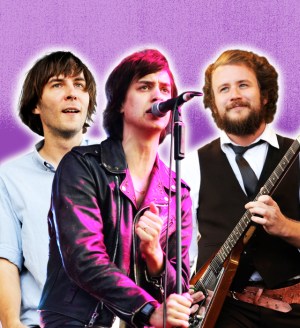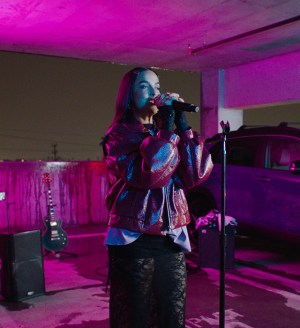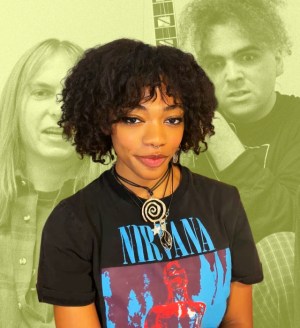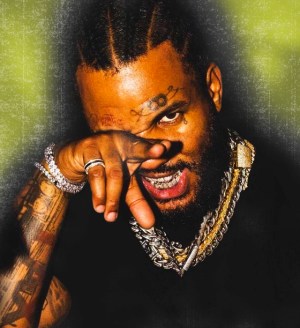Music + Culture
SHOWS
Covers Books
EVENTS
FEATURED
BRANDS
TRAVEL,
DRINKS & EATS
DRINKS & EATS
Latest
Uproxx’s Jeremy Hecht Discusses J. Cole’s Final Goal Before Retiring
J. Cole is days away from releasing his latest album, The Fall-Off, on February 6. The way Uproxx's Jeremy Hecht sees it, he thinks Cole is retiring after this project, but he hopes to do so having accomplished one final goal. https://www.instagram.com/p/DT55c4IjhcA/ In a new video, Hecht starts, "We all know that Cole dropped out of the battle with Drake and Kendrick, and with that, he did give up his ability to gain the crown as the greatest rapper alive. Some people like Fat Joe can't even listen to his upcoming project, and I think that's stupid: I'm excited for…
Bruno Mars Is The Final Name Added To The 2026 Grammys Performance Lineup
In recent days, the Recording Academy has been gradually rolling out its list of performers for the 2026 Grammy Awards (set to air on February 1). Today (January 30), days before the ceremony, they added one more name to the list: Bruno Mars. As Billboard notes, he's the last performer that will be announced. He joins a performance lineup that also includes Addison Rae; Alex Warren; Andrew Watt; Brandy Clark; Chad Smith; Clipse; Duff McKagan; Justin Bieber; KATSEYE; Lady Gaga; Leon Thomas; Lola Young; Lukas Nelson; Ms. Lauryn Hill; Olivia Dean; Pharrell Williams; Post Malone; Reba McEntire; Rosé; Sabrina Carpenter;…
The Grammys Should Catch Up To PinkPantheress
In 2025, we received exceptional projects from Black women in electronic dance music: Kelela equipping her talents for an enchanting jazz-filled live album, hypnotic club grooves from Rochelle Jordan, Amaarae's ode to Black diasporic dance music, Sudan Archives' sensual fusion of techno and house, two albums by FKA Twigs for the pregame/afters, and keiyaA's layered experimental sophomore album. These projects are often applauded by other Black women and femmes while simultaneously acknowledging the reclamation of dance music's inherently Black roots. In the music industry, Black women have to work twice as hard to bend the limitations of genres, and that…
These Essential Latin Music Video Directors Are Driving A Creative Revolution
As music approaches language and genre-fluid territory, those working behind the scenes are as essential to the process as the artists themselves. Latin music has long served as an outlet for both emotion and celebration, and visuals for artists like Bad Bunny, Omar Apollo, and Karol G have proven to be equally powerful. Many of these artists have remained with their visual collaborators for years, displaying excellent creative chemistry. As these musicians' creativity evolves, the directors of their music videos have grown alongside the singers' and rappers' craft. Consistency is a key component of Latinidad and work ethic, and below,…
Hayley Williams Is Indefatigable As She Launches Another New Project, A Band Called Power Snatch
Hayley Williams has been going pretty much nonstop the past few years. Paramore dropped their latest album, This Is Why, in 2023. The band spent some of that year and next opening for Taylor Swift on The Eras Tour. In 2025, she released a series of singles that ended up comprising the album Ego Death At A Bachelorette Party. Well, new year, new project: Williams just unveiled a new band, Power Snatch. It's a duo and the collaborator is a familiar one: Daniel James, who was heavily involved in writing and producing Ego Death At A Bachelorette Party. So far,…
The Emotionally Heavy (And Likeable!) Indie Rock Of Ratboys
If you know anything about the Chicago indie-rock band Ratboys, it probably concerns their likeability. Ratboys are a likeable band. They are likeable because they make really good music, and they are likeable because they have made really good music consistently over the course of 11 years and six albums. (Their latest, Singin' To An Empty Chair, arrives February 6.) But they are also likeable because they work hard, they travel pretty much anywhere and everywhere, and they do their jobs with kindness and professionalism. They are likeable the way your mailman is likeable. The "Ratboys are likeable" narrative is…
Uproxx’s Baylee Lefton Shares Songs For Sipping Margaritas On The Coast With Her Latest Playlist
Keeping up with music news and resources like Spotify's giant and regularly updated New Music Friday playlist are great ways to keep your listening habits from getting stale. Sometimes, though, you need a deeper dive. That's where Uproxx's Baylee Lefton comes in as she routinely offers quick-hit lists of songs you need to add into your rotation this week. She just delivered a fresh mix and it's full of songs for sipping margaritas on the coast. https://www.instagram.com/p/DT3iS38kvmN/ What does that mean? "Think beachy, smooth, and tropical," as Baylee puts it. The mix includes Reyna Tropical's "Cartagena" and "No Me Quieres,"…
Uproxx’s Joypocalypse Explains Why Melvins Deserve More Credit
Melvins were a key force in rock music beginning in the '80s. Specifically, their influence on grunge and sludge metal is incalculable. Despite forming in 1983, they're still around today, and so are legions of artists who took inspiration from their distinct sound. As Uproxx's Joypocalypse notes, Melvins are one of those bands where hearing them makes you realize how much music traces back to them. https://www.instagram.com/p/DT_ISquEt0f/ She says: "They slowed everything down from the typical '80s hardcore punk speed, incorporating heavier riffs and grittier tones. With this shift, they were laying the groundwork for sludge, but also shaping the…
.idk. Links With Land Rover To Design His Own Custom Defender And Play New Music For Fans
Very few people in the world get to design their own car (Billie Eilish would really like to have a go). Now, .idk. is among them, as he just teamed up with Land Rover to make his own custom Defender design. He made great use of the vehicle by taking a test drive with fans as they listened to and discussed his latest project, e.t.d.s. A Mixtape by .idk.. This is all chronicled in a new video. It starts with .idk. in storyteller mode, explaining the meaning that parts of his past brought to this collaboration: "When I got out…
Benson Boone Does A Flip (And Ben Stiller Tries To) In A Hilarious New Super Bowl Commercial
Benson Boone isn't playing the Super Bowl Halftime Show yet, but in the meantime, he will have a presence at the big game this year via a new Spike Jonze-directed ad for Instacart, in which he stars alongside Ben Stiller. In the ad, Boone and Stiller play an '80s musical duo singing a song about Instacart. Boone does a backflip, which upsets Stiller, who feels like he's being upstaged. He tries a flip of his own, which doesn't go well. This sparks some on-stage conflict and a series of escalating flip attempts. Boone discussed the ad with Billboard, saying of…
King Princess Covers A Geese Song She Declares Is ‘Such A Lesbian Anthem’
Geese was one of 2025's hottest bands among critics and music fans. They've caught the attention of their peers, too, as King Princess just covered "Au Pays Du Cocaine" in the BBC Radio 1 Live Lounge. Her take on the track is a bit more upbeat than Geese's original. King Princess also chatted with BBC Radio 1 host Jack Saunders about why she chose to cover the song and she said, "That Geese song is such a lesbian anthem. I don't know if he [Winter] meant to write such a lesbian song, but it really is quite d***-centric." When asked…
Lizzo Is Playing Some Special Jazz Shows At The Blue Note Jazz Club In New York And LA
Lizzo is coming off a 2025 that saw her go all-in on rap with a new mixtape, My Face Hurts From Smiling. She also popped up on Cardi B's hotly anticipated second album. Now her 2026 is off to a busy start, as today (January 26), she announced a run of 12 shows at the Blue Note Jazz Club's New York and Los Angeles locations. The performances, happening in February and March, will feature jazz and flute arrangements of Lizzo's songs, made especially for these gigs. Ticket availability begins with an artist pre-sale starting January 28 at 10 a.m. local…
Charli XCX And Kylie Jenner Star In The Bold Video For A.G. Cook’s ‘The Moment’ Song ‘Residue’
Charli XCX's new movie The Moment isn't far now, with the film set to premiere nationwide on January 30. At the same time, A.G. Cook's score for the film will be released. In a teaser for both that and the film, he shared a new Charli-starring video for "Residue." The visual starts with Charli looking down the barrel of the camera with a cigarette in hand. The shot pushes out to reveal Charli standing on a sidewalk, at which point she drops the cig, puts on some sunglasses, and walks with an emphatic strut. She immediately makes her way to…
Billie Eilish’s 3D Concert Movie Release Date Has Been Pushed Back And James Cameron Explains Why
Hit Me Hard And Soft: The Tour (Live In 3D), Billie Eilish's concert film created alongside James Cameron, got its first trailer last month. At the time, the movie was set to arrive on March 20. That is no longer the case, as the release date has now been pushed back to May 8. In an Instagram post shared yesterday (January 26), Cameron shared photos of him and Eilish working on the movie and explained: "We're refining the cut; dialing in cool, new 3D tech; adding some special behind-the-scenes we know you'll love. HIT ME HARD AND SOFT: THE TOUR…
Uproxx’s Jarret Myer Talks Rawkus Records And More With will.i.am On The ‘Culture FYI’RS’ Podcast
UPROXX Studios Chief Visionary Officer will.i.am seems to always have a dozen balls in the air, whether he's helming Uproxx's Visionaries interview and performance series, making a new anthem for the Los Angeles Dodgers, or popping up on the ASAP Rocky album that just debuted at No. 1. He's also the co-founder of the AI-powered collaborative communication messaging platform FYI. There's an accompanying podcast, Culture FYI'RS, too, and on a recent episode, the guest was Jarret Myer, co-founder of influential hip-hop record label Rawkus Records and UPROXX Studios. In a chat with FYI Chief Growth Officer Julie Pilat, Myer discussed…
Kid Cudi Refuses To Rest As He Announces ‘The Rebel Ragers Tour’ For 2026
Kid Cudi fans have been eating over the past two years, during which time Cudi has released three albums: Insano, Insano (Nitro Mega), and Free. Now there's even more reason to get excited: Today (January 26), Cudi announced The Rebel Ragers Tour. The run stretches from April to June and will hit a bunch of North American cities. The tour features support from M.I.A., Big Boi, A-Trak, and more. Tickets will be available via an artist pre-sale starting January 27 at 10 a.m. local time. The general on-sale kicks off on January 30 at 10 a.m. local time. More information…
ASAP Rocky’s ‘Don’t Be Dumb’ Is Officially His First No. 1 Album In Over A Decade
Don't Be Dumb is ASAP Rocky's first new album in nearly ten years, since 2018's Testing. Now, it's his first chart-topping album in over a decade: On the new Billboard 200 chart dated January 31, Don't Be Dumb debuts at No. 1. This is thanks to 123,000 equivalent album units earned in the United States during the week ending January 22. It's his third album to debut at No. 1, following AT.LONG.LAST.A$AP in 2015 and LONG.LIVE.A$AP in 2013. Rihanna is pretty pumped about it, writing on X, "Just me here to let yall know my baby daddy got the NUMBER…
Kenia Os Is Pushing Latin Pop Towards A Fierce Future
Kenia Os is very much a pop star of the times. In the past few years, the former influencer parlayed her massive social media following into a music career and a Latin Grammy nomination. Like a true pop princess, Os has also undergone several evolutions in both image and sound with each new album. Now, the Mexican superstar is ushering in her edgiest era yet with her new single "Belladona." "I feel like a completely different Kenia," Os says. "This is the era that I've most liked of my whole career. I've had the most fun working on the music…
Fred Again.. Taps Young Thug For The Uplifting ‘Scared,’ His First New Song Of 2026
It's only been a few weeks since we've had a new Fred Again.. song, but given his ceaseless release schedule in the latter half of 2025, that feels like a long time. Fred unloaded a batch of USB002 songs to round out the year, but now he's back with his first new song of 2026. The track is "Scared" and the collaborator this time around is Young Thug. Like is often the case with Fred songs, the vocal was pre-existing. Here, Thug's vocals are pulled from an unreleased song that fans have referred to as "Lucky." In a recent post,…
Chalk Teeth Make A Striking Debut With Their Brooding Dark Wave Single ‘Struck’
Chalk Teeth have been busy. The trio of Karolina Wallace (vocals and guitar), Adam Wallace (guitar), and Jason Miller (bass, synths, drums, production, engineering) spent much of 2025 performing across Los Angeles and New York. Now, they're preparing a new album, their first, set for early 2026. One of the songs that's been a setlist staple (here's a live clip from 2024) is "Struck," so Chalk Teeth are finally releasing it as their debut single today (January 23). The near-six-minute track falls right in line with how the band describes themselves: "Shoegaze-tinged, motorik dark wave. Black glass synths, washed in…
Harry Styles’ Long-Awaited New Single, ‘Aperture,’ Has Arrived
Harry Styles has kept largely out of the public eye since releasing his 2022 album Harry's House and touring in support of it. Finally, though, he has started to re-emerge. Last week, he announced Kiss All The Time. Disco, Occasionally., a new album, and now, he has shared the lead single, the slow-burning "Aperture." In a SiriusXM interview with John Mayer, Mayer asked about the song's five-plus-minute length and Styles said: "I actually think what I really like about the song is that it was really just about being true to the song. I think when we were in the…
Uproxx’s Jeremy Hecht Explains How Jadakiss And Zohran Mamdani Made New York City History
Zohran Mamdani's inauguration as mayor of New York City was historic for multiple reasons: He's the youngest mayor in NYC history and the first Muslim mayor the city has ever had. As Uproxx's Jeremy Hecht points out, he's also the first mayor to reference a member of The Lox during his inauguration speech. https://www.instagram.com/p/DTD4PGhklC3/ Mamdani said: "And throughout it all, 'We will' -- in the words of Jason Terrence Phillips, better known as Jadakiss or 'Ja' to the mwah' -- 'be outside.'" Jeremy notes, "This referenced an iconic moment during Jadakiss' Verzuz battle where he got on stage and said…
Uproxx’s Baylee Lefton Walks Through Generations Of Women’s R&B And Soul With Her Latest Playlist
Keeping up with music news and resources like Spotify's giant and regularly updated New Music Friday playlist are great ways to keep your listening habits from getting stale. Sometimes, though, you need a deeper dive. That's where Uproxx's Baylee Lefton comes in as she routinely offers quick-hit lists of songs you need to add into your rotation this week. She just delivered a fresh mix and it pays homage to years of standout women making R&B and soul music. https://www.instagram.com/p/DT0nau5AcGD/ Baylee had the impossible task of sorting through decades (starting in the 1960s) of music and choosing just a song…
Enter To Win A $25 Apple Gift Card By Participating In The UPROXX Music Trends Report
Music is one of the fastest-moving parts of the entertainment landscape. Generative artificial intelligence has introduced new possibilities and concerns essentially overnight. Social media platforms like TikTok can create new stars or revive public consciousness of classic icons. More and more each day, musicians are expanding the scope of their creative endeavors beyond music, turning themselves into multimedia forces. Through it all, UPROXX remains dedicated to being at the forefront of innovation and what's next in music and related fields. But, we can't do it alone. That's where you come in, and you could win a sweet prize for your…
Uproxx’s Joypocalypse Dives Into The Mudhoney Album That Inspired Kurt Cobain
Short-lived '80s band Green River were pioneers, commonly cited as offering some of the earliest examples of grunge. When the group dissolved a few years after its founding, some of the members went on to form Mudhoney, who continued the development of grunge as a genre. Their debut release, the 1988 EP (sometimes called an album) Superfuzz Bigmuff, was a pivotal and formative work in the space. As Uproxx's Joypocalypse notes, the project was incredibly influential and even found a fan in Kurt Cobain. https://www.instagram.com/p/DTtUAKfEqD-/ She says: "From one great band to another: After Green River dissolved, we got Mudhoney,…
The Best Indie Albums Of 2006, Ranked
This column is about the best indie albums of 2006. By which I mean, my favorite indie albums of 2006. The personal preference is implied, perhaps, but there are biases that have influenced the creation of the following list that must be disclosed before you read another word. I state the following in the spirit of fair play and transparency, so that the reader is equipped with the necessary information to properly assess my assessments. So that when a person reads this and says, "Whoever wrote this is an idiot," they will do so with the assurance of having all…















































































































